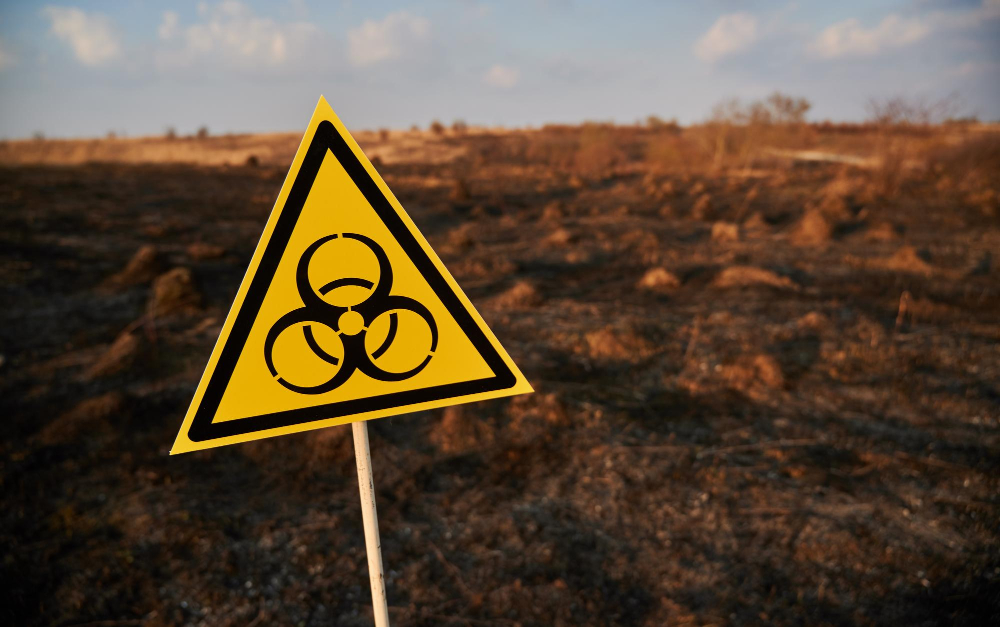Fifty years ago on June 10, 1963, President John F. Kennedy in this landmark American University commencement address, surprised the world by announcing the U.S. suspension of above-ground nuclear weapons testing. By the fall of 1963, the Limited Nuclear Test Ban Treaty (LTBT) which prohibits nuclear weapons testing in the atmosphere, underwater, or in space was signed and ratified by the U.S., Soviet Union and Great Britain. Remarkably, this treaty followed immediately on the heels of the Cuban missile crisis where the U.S. and Soviet Union came to the brink of nuclear war.
For many of its supporters, the LTBT was a timely compromise but not the best long-term solution. The LTBT prevented the further dispersion of nuclear fallout caused by U.S. and Soviet atmospheric nuclear tests. Well before Kennedy’s June commencement address, measurable and significant levels of radioactive isotopes had been accumulating in the food chain, and subsequently, in human bodies across the globe. Kennedy was facing increasing public pressure at home to end nuclear testing to eliminate further environmental contamination. Kennedy agreed to the LTBT rather than push for a total or comprehensive test ban treaty in part because of concerns that rogue nations would violate a comprehensive treaty and conduct illegal and undetectable underground tests, thereby gaining a technological edge over the U.S. That is, as long as cheating could be done without detection, the security risks of a comprehensive test ban treaty outweighed the potential benefits.
Fast-forward nearly thirty years to 1992 and President George H. W. Bush was faced with a radically changed geopolitical landscape. The Soviet Union unexpectedly collapsed under the weight of its own moral and economic deficiencies. The dissolution of the Soviet Union brought an end to both the Cold War and the nuclear arms race with the U.S. Also by 1992, the U.S. had conducted over one thousand explosive nuclear tests and amassed the largest experiential and theoretical knowledgebase on nuclear weapons design, reducing the need for continued U.S. testing. This new reality led President Bush to declare and the Senate to approve a U.S. moratorium on all explosive nuclear weapons testing.
This 1992 moratorium gave hope that the time was right for the global adoption of a Comprehensive Test Ban Treaty (CTBT), which would forever ban all nuclear explosive testing, including underground tests such as those most recently conducted by North Korea. In 1996, the United States became one of the earliest signatories to the CTBT.
Unfortunately, a wary and politically exhausted Senate failed to ratify this treaty in a partisan vote in the fall of 1999. Today, the U.S. remains one of a handful of nations who has not yet ratified the CTBT, a treaty which Russia and all of the U.S.’s NATO allies have long since ratified. While the U.S. continues to adhere to a self-imposed moratorium on nuclear testing, it fails to reap the full anti-proliferations benefits that would come with the entry into force of the CTBT.
The rationale for opposing the CTBT today echoes doubts Kennedy faced in 1963: How to assure global compliance to the terms of the treaty? Politically, Kennedy had this to say about the doubters in his American University address: “No treaty … can provide absolute security against the risks of deception and evasion. But it can … offer far more security and far fewer risks than an unabated, uncontrolled, unpredictable arms race.”
While the political hurdles remain, tremendous technological progress has been made in the ability to detect illegal underground nuclear tests. In the last decade, the International Monitoring System built over 250 global monitoring stations and now has the proven capability of detecting any underground explosive nuclear test of military significance. With the development of this global monitoring system, it is possible today to apply President Reagan’s essential criteria for evaluating any arms control agreement. We now have the ability to “trust, but verify.”
Fifty years ago after President Kennedy’s impassioned call for an end to nuclear weapons testing as an essential step toward a state of global peace, it is time for the U.S. Senate to do its part to curb the continued proliferation of nuclear weapons states by voting to ratify the CTBT.

